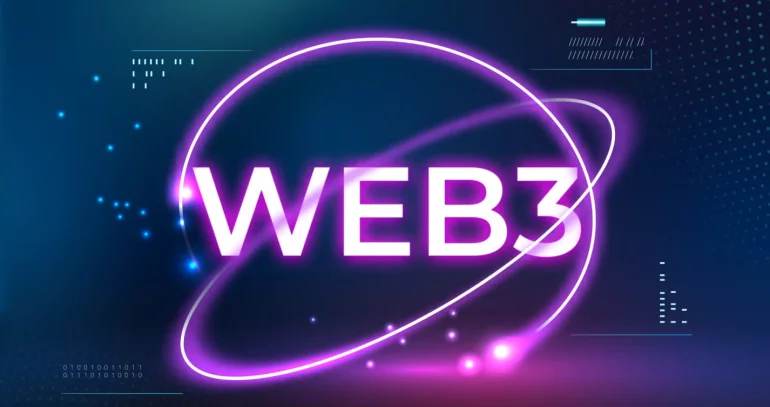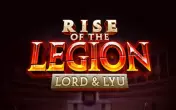
The online gambling industry is constantly evolving, with new technologies reshaping how players interact with casinos. One of the most groundbreaking developments in recent years is the rise of Web3 online casinos. These platforms utilize blockchain technology, smart contracts, and decentralized networks to provide a new type of gambling experience—one that prioritizes transparency, fairness, and user control.
As traditional online casinos face growing concerns about trust, privacy, and regulation, Web3 casinos are positioning themselves as the future of digital gambling. But what exactly is Web3? How does it work in the context of casino gaming? And what benefits—or risks—should players be aware of?
In this article from Casinoz, I’ll explore everything you need to know about Web3 casinos, including their key features, advantages, challenges, and future outlook.
What Is Web3?
Web3 is the next generation of the internet, built on decentralized technologies such as blockchain, smart contracts, and peer-to-peer networks. Unlike the traditional web (Web2), which relies on centralized servers and authorities, Web3 offers a more open, secure, and user-driven experience. This shift is revolutionizing various industries, including online gambling.
In the context of online casinos, Web3 introduces new levels of transparency, player control, and fairness that were previously unattainable. Understanding the core concepts of Web3 is crucial for grasping how Web3 online casinos operate and why they are gaining popularity among players worldwide.
Key Characteristics of Web3
- Decentralization – Data and control are distributed across blockchain networks, rather than being managed by a single company or server.
- Blockchain Technology – A public ledger that records all transactions and activities, ensuring transparency and immutability.
- Smart Contracts – Self-executing agreements with predefined rules coded into the blockchain, eliminating the need for intermediaries.
- Cryptographic Security – Advanced encryption and consensus mechanisms that enhance user privacy and data protection.
- User Ownership – Individuals have control over their assets, data, and digital identity, typically through non-custodial wallets.
Differences Between Web1, Web2, and Web3
Feature | Web1 | Web2 | Web3 |
Architecture | Static pages | Dynamic content | Decentralized apps (dApps) |
Data Control | Publishers | Centralized platforms | Users |
Monetization | Limited | Ad-driven | Token-based |
User Identity | None | Platform-based accounts | Crypto wallets |
Trust Model | One-way communication | Intermediaries | Trustless systems |
These innovations lay the foundation for Web3 casinos, offering an enhanced gambling experience that emphasizes fairness, transparency, and player empowerment.
What Are Web3 Online Casinos?
Web3 online casinos are gambling platforms built on blockchain technology that use decentralized systems to operate. Unlike traditional online casinos, which rely on centralized servers and company-controlled databases, Web3 casinos function through smart contracts and peer-to-peer networks. This creates a more transparent and trustless environment, where players have greater control over their funds and gameplay.
These casinos are typically accessed through a cryptocurrency wallet, eliminating the need to create an account or share personal data. Games run on provably fair algorithms, and transactions—including bets, payouts, and bonuses—are executed automatically via smart contracts. As a result, Web3 casinos offer a new level of security and player autonomy.
Types of Web3 Casinos
- Fully Decentralized Casinos are operated by smart contracts and governed by DAOs (Decentralized Autonomous Organizations), with no central authority or management.
- Hybrid Casinos combine traditional casino elements with blockchain features such as crypto payments, provably fair games, and selective decentralization.
- Blockchain-Only Casinos are built entirely on blockchain platforms like Ethereum, BNB Chain, or Solana, often featuring crypto-native games and NFT integrations.
How Web3 Casinos Work
- The player connects a crypto wallet (such as MetaMask or Trust Wallet) to the platform.
- Funds are deposited in cryptocurrencies such as BTC, ETH, or USDT.
- Games are played using smart contracts that automatically execute wagers, outcomes, and payouts.
- Winnings are returned directly to the player’s wallet, often instantly and with minimal fees.
By removing intermediaries and placing power in users' hands, Web3 gambling sites create a more transparent, user-focused experience that appeals to both crypto enthusiasts and modern online casino players.
Key Features of Web3 Casinos
Web3 casinos stand out from traditional online gambling platforms due to their innovative features powered by blockchain technology. These features not only enhance the user experience but also address common issues such as trust, transparency, and control. Below are the core elements that define Web3 gambling platforms.
Decentralization
One of the main pillars of Web3 casinos is decentralization. Instead of being operated by a single entity, these platforms often run on smart contracts and are governed by communities through DAOs (Decentralized Autonomous Organizations). This reduces the risk of corruption, censorship, or manipulation.
Transparency
All transactions and game outcomes are recorded on a public blockchain, making them verifiable by anyone. Players can audit the system to ensure that everything is fair and tamper-proof, eliminating the need to trust the operator blindly.
Anonymity and Privacy
Web3 casinos usually don’t require users to submit personal information. Players connect via a crypto wallet, providing a high level of privacy and anonymity. This is especially appealing in regions with strict gambling laws or concerns about privacy.
Provably Fair Gaming
Many Web3 platforms use cryptographic methods to create provably fair games. This system allows players to verify the randomness and fairness of each game result on the blockchain, ensuring honest gameplay without the possibility of manipulation.
Tokenization
Web3 gambling sites often issue their own tokens, which can be used for betting, governance, or earning rewards. Some platforms also use NFTs (non-fungible tokens) to provide unique in-game assets, VIP access, or ownership of game elements.
Smart Contracts
Smart contracts handle everything from bet placement to payout distribution. These self-executing contracts follow coded rules, eliminating the need for human intervention and reducing the risk of delayed or unfair payouts.
Global Accessibility
Because they operate on decentralized networks and use cryptocurrencies, Web3 online casinos can be accessed from anywhere in the world. There are no geographical restrictions or currency conversion issues, making them attractive to a global audience.
These key features combine to create a new standard for online gambling—one that prioritizes fairness, security, and user control. As players become more tech-savvy and privacy-conscious, the demand for Web3 casinos is expected to rise.
Benefits of Web3 Online Casinos
Web3 casinos offer numerous advantages that appeal to modern gamblers looking for a more transparent, secure, and engaging experience. These benefits stem from the core principles of blockchain technology and decentralized systems. Here are the main reasons why players are turning to Web3 gambling platforms.
Full Transparency
Every transaction and game outcome is recorded on the blockchain, allowing players to verify the fairness of games and the legitimacy of payouts. This level of transparency is rarely found in traditional online casinos.
Enhanced Security
Web3 casinos use cryptographic security and non-custodial wallets, which minimize the risk of hacks, fraud, and data breaches. Players retain control of their funds at all times, eliminating the need to trust a third party with their assets.
Instant Transactions
Thanks to smart contracts and blockchain networks, deposits and withdrawals are processed quickly—often within seconds—without the delays commonly experienced in centralized systems.
Player Anonymity
Most Web3 platforms do not require personal identification. Users simply connect a crypto wallet, enabling them to gamble anonymously while protecting their personal data.
Provably Fair Games
Blockchain-based random number generators and cryptographic proof systems ensure that game results are unbiased and verifiable. Players can check the fairness of every round themselves.
Lower Fees
Because there are no banks, payment processors, or intermediaries involved, Web3 casinos can operate with significantly lower transaction fees. This means more money goes directly to the players.
Global Reach
With no dependency on traditional banking systems or local currencies, Web3 gambling sites are accessible to users worldwide, even in countries with restricted access to online casinos.
Community Governance
Token holders govern some Web3 casinos through DAOs. This gives players a voice in the platform’s development, such as voting on new features, rules, or reward structures.
These benefits make Web3 online casinos an appealing alternative for gamblers who value privacy, fairness, and speed. As the technology matures, these advantages are likely to become even more pronounced, driving further adoption in the online gambling industry.
Challenges and Risks of Web3 Casinos
While Web3 casinos offer innovative features and significant advantages, they also come with unique challenges and potential risks. It's important for players to understand these downsides before diving into decentralized gambling.
Regulatory Uncertainty
The legal status of Web3 gambling platforms is unclear in many jurisdictions. Since these casinos often operate without licenses from traditional regulatory bodies, players may have limited legal recourse in case of disputes.
Technical Complexity
Using Web3 casinos often requires a basic understanding of blockchain technology, cryptocurrency wallets, gas fees, and smart contracts. This learning curve can be intimidating for casual players or those new to crypto.
Irreversible Transactions
Blockchain transactions are permanent. If a user sends funds to the wrong address or interacts with a malicious smart contract, there is no way to reverse the action or recover the funds.
Smart Contract Vulnerabilities
Poorly written smart contracts can be exploited by hackers, leading to theft or loss of funds. Even well-known platforms have suffered from bugs and vulnerabilities, highlighting the need for thorough audits.
Limited Game Selection
Compared to traditional online casinos, many Web3 platforms currently offer a smaller variety of games. While the selection is growing, it may not yet meet the expectations of all players.
Price Volatility
Since cryptocurrencies are used for deposits, bets, and withdrawals, players are exposed to the high volatility of digital assets. A sudden market dip can significantly affect the value of winnings or funds held in a wallet.
Lack of Customer Support
Fully decentralized platforms may not offer traditional customer service. In many cases, players must rely on community forums or DAOs for help, which can be slow or inconsistent.
Despite these risks, many users still choose Web3 casinos for their transparency and innovation. However, it's crucial for players to do their research, use reputable platforms, and practice good security habits when engaging with decentralized gambling.
Popular Cryptocurrencies Used in Web3 Casinos
One of the defining features of Web3 online casinos is their reliance on cryptocurrency for deposits, wagers, and withdrawals. These digital assets enable fast, secure, and anonymous transactions without involving traditional banking systems. Below are the most commonly used cryptocurrencies in Web3 gambling platforms.
Bitcoin (BTC)
As the first and most widely recognized cryptocurrency, Bitcoin is accepted at nearly all crypto and Web3 casinos. It offers high security and strong liquidity, though transaction times and fees can vary with network congestion.
Ethereum (ETH)
Ethereum is the backbone of many Web3 casinos, especially those using smart contracts. It supports a wide range of decentralized applications (dApps) and is known for enabling provably fair gaming through transparent, self-executing code.
Tether (USDT)
Tether is a popular stablecoin pegged to the US dollar. Many players prefer using USDT in Web3 casinos to avoid the volatility commonly associated with other cryptocurrencies.
Binance Coin (BNB)
BNB is widely used on Binance Smart Chain-based casinos due to its low fees and fast transactions. Many decentralized gambling dApps are built on this blockchain, making BNB a go-to option for cost-effective gameplay.
Solana (SOL)
Solana is known for its ultra-fast and low-cost blockchain transactions. Some emerging Web3 casinos built on the Solana network offer seamless gaming experiences with minimal latency.
Polygon (MATIC)
Polygon is a layer-2 scaling solution for Ethereum. It provides fast, cheap transactions, making it ideal for Web3 casinos that need high throughput without sacrificing the security of the Ethereum mainnet.
Other Tokens
- Chainlink (LINK) – Often used in decentralized oracle networks to power provably fair games.
- DAI – A decentralized stablecoin that offers price stability for Web3 players.
- Casino-native tokens – Many platforms issue their own tokens that can be used for betting, staking, and governance within their ecosystems.
Choosing the right cryptocurrency depends on the casino’s supported networks, the user’s familiarity with the coin, and the desired balance between speed, cost, and stability. By supporting multiple digital assets, Web3 gambling platforms provide players with flexibility and financial freedom.
How to Start Playing at a Web3 Casino
Getting started with a Web3 online casino is easier than it might seem, especially if you're already familiar with cryptocurrencies. Follow these simple steps to begin your decentralized gambling experience safely and efficiently.
1. Choose a Reputable Web3 Casino
Start by researching reliable and well-reviewed platforms. Look for Web3 casinos with transparent smart contracts, a history of fair play, and active communities. Consider factors such as game selection, supported tokens, and the user interface.
2. Set Up a Crypto Wallet
You’ll need a non-custodial wallet such as:
- MetaMask
- Trust Wallet
- Phantom
- WalletConnect-compatible wallets
These wallets allow you to securely connect to Web3 dApps and manage your crypto funds directly.
3. Fund Your Wallet
Buy cryptocurrency on an exchange and transfer it to your Web3 wallet. Make sure to choose the right coin for the casino you plan to use, such as ETH, BTC, USDT, or the casino's native token.
4. Connect to the Casino
Visit the casino’s website and click on “Connect Wallet.” Approve the connection request through your wallet. This step replaces traditional account creation and login systems with blockchain-based authentication.
5. Deposit Funds (If Required)
Some Web3 casinos require players to deposit funds into the platform’s smart contract. Others let you wager directly from your wallet. Always double-check the smart contract address and transaction fees before sending funds.
6. Start Playing
Explore the available games—pokies, dice, poker, roulette, and more. Many platforms offer provably fair mechanisms that allow you to verify the randomness and fairness of each result in real time.
7. Withdraw Your Winnings
If you win, you can withdraw your funds directly back to your wallet. Some platforms process withdrawals instantly using smart contracts, without the need for manual approval.
8. Practice Good Security
Always keep your private keys secure and never share your seed phrase. Use hardware wallets for larger balances and double-check URLs to avoid phishing scams.
By following these steps, you can begin enjoying the benefits of decentralized gambling. Web3 casinos offer a modern, secure, and transparent alternative to traditional gambling platforms, giving players more control than ever before.
The Future of Web3 Casinos
The future of Web3 casinos looks promising as blockchain technology continues to evolve and gain mainstream acceptance. These decentralized platforms are reshaping the online gambling industry by prioritizing transparency, fairness, and user autonomy. Here’s what we can expect in the coming years.
- As more players become familiar with cryptocurrencies and decentralized finance (DeFi), Web3 casinos are likely to see significant growth. The global shift toward digital assets and privacy-focused technologies supports this trend.
- Early Web3 gambling platforms often had clunky interfaces and complex onboarding processes. Future developments will focus on streamlining the user experience, making Web3 casinos as intuitive and user-friendly as traditional sites.
- Future Web3 casinos may support multiple blockchains, allowing users to play games and move assets across networks like Ethereum, Solana, BNB Chain, and Polygon. This interoperability will create more seamless and inclusive gaming environments.
- Combining AI with smart contracts will open new possibilities in game design, risk management, and personalized player experiences. Smart contracts will continue to automate payouts, bonuses, and game mechanics without human intervention.
- More platforms will adopt decentralized autonomous organizations (DAOs) to give players a voice in important decisions. This will strengthen community involvement and ensure casinos align more closely with player interests.
- Regulators around the world are beginning to recognize the rise of Web3 platforms. Future legislation may introduce new licensing frameworks specifically for decentralized gambling, helping to legitimize and protect both operators and players.
- Web3 casinos may become part of larger metaverse ecosystems, offering immersive virtual experiences with interactive environments, NFT-based assets, and real-time social interaction. This could redefine what online gambling looks like.
- With provably fair algorithms and transparent smart contracts, Web3 casinos will continue to lead the industry in building trust. Players will increasingly demand these features from all gambling platforms, pushing the whole sector forward.
The evolution of decentralized online casinos is still in its early stages, but the foundation is strong. As technology matures, Web3 gambling is poised to disrupt the industry in ways that benefit both operators and players.
Here are several reliable bitcoin casinos.
| Casino | Deposit methods | Withdrawal methods | Accepted currencies | |
|
+7
|
+6
|
$, €, ₽, ₴ | ||
|
+4
|
+3
|
$, €, ₽, KZT | ||
|
+6
|
+6
|
$, €, ₽, KZT, C$, kr, zł, ₴ | ||
|
+12
|
+11
|
$, €, ₽, C$, ¥, kr | ||
|
+9
|
+8
|
$, €, ₽ | ||
|
+9
|
+7
|
$, €, ₽ | ||
|
+12
|
+8
|
$, €, ₽, KZT, kr, zł | ||
|
+6
|
+5
|
$, €, ₽ | ||
|
+1
|
+1
|
$, €, ₽, KZT, kr, zł, ₴, YTL | ||
|
+6
|
+7
|
$, €, ₽, ₴ |
Conclusion
Web3 online casinos represent a revolutionary shift in the world of digital gambling. By harnessing blockchain technology, these platforms offer a new level of transparency, security, and player empowerment. From instant crypto payments and provably fair games to decentralized governance and anonymous play, Web3 casinos are reshaping how we think about online betting.
While the industry is still evolving, the advantages of decentralized gambling are clear. Players no longer have to rely on centralized operators or opaque systems. Instead, they can take control of their gaming experience in a transparent, efficient, and trustless environment.
As adoption grows and technology advances, Web3 casinos will continue to develop, offering more innovative features and expanding their reach.

















